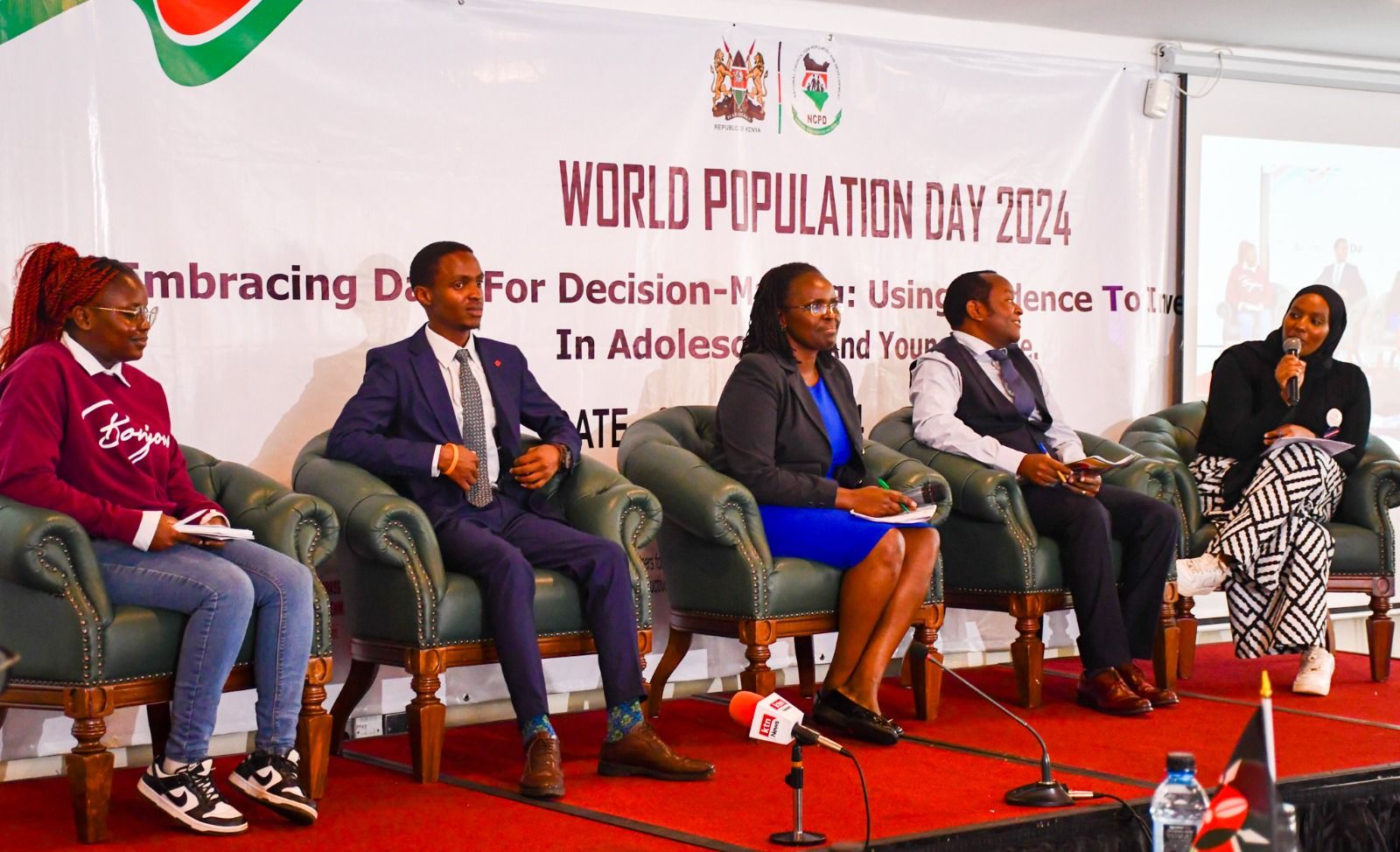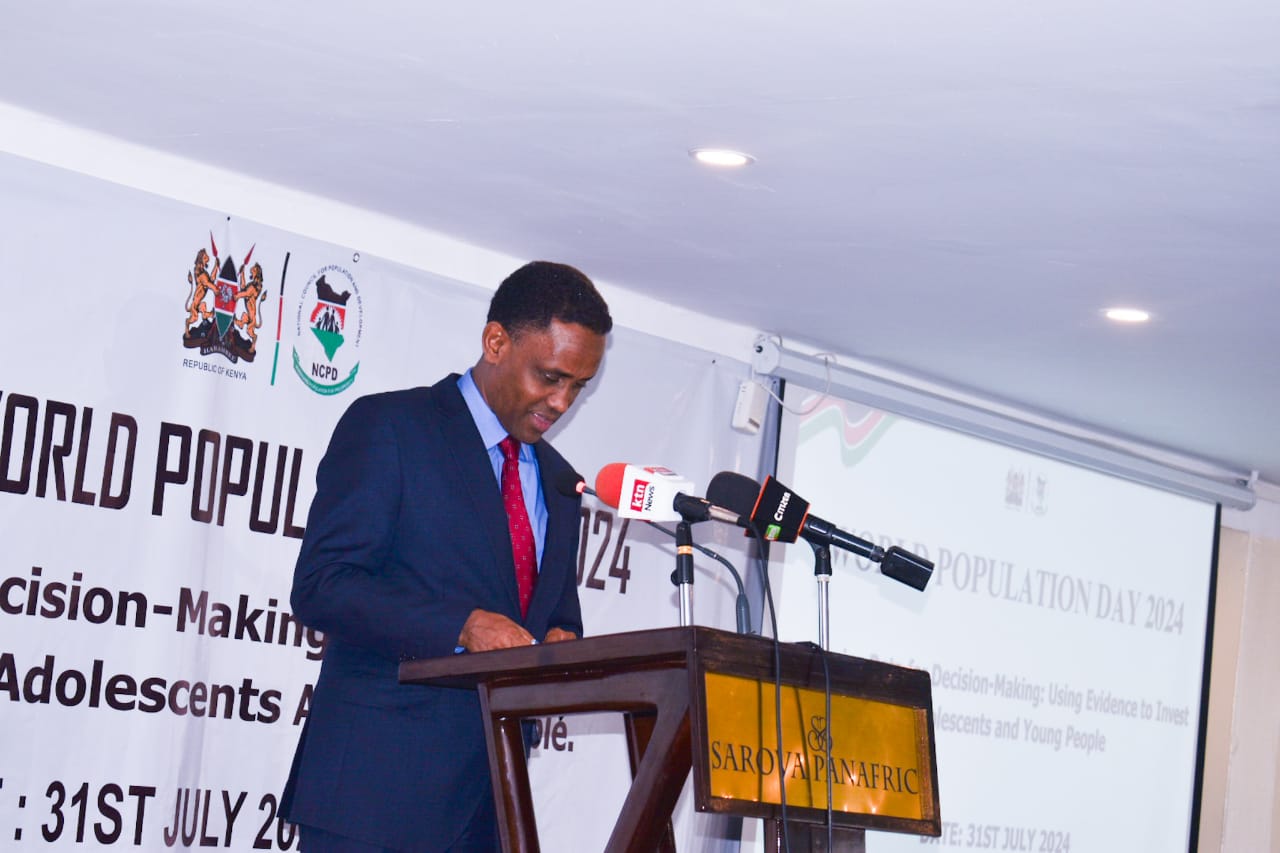Kenya joined the global community on July 31 to commemorate World Population Day, a day dedicated to understanding and managing population trends. Although traditionally observed on July 11, this year’s celebration in Kenya was postponed due to unforeseen circumstances. Despite the delay, the event carried a powerful message centered on the importance of data in policy-making.
The theme for this year, “Embracing Data for Decision-Making: Using Evidence to Invest in Adolescents and Young People,” highlighted the crucial role that accurate and comprehensive data plays in shaping policies that impact Kenya’s future generations. Adolescents and young people, who make up a significant portion of the population, were at the heart of the discussions, emphasizing the need for data-driven decisions that cater to their needs.

National Council for Population and Development (NCPD) Director General, Mohamed Sheikh addressed the gathering, explaining the change of date. He cited factors beyond their control that led to the rescheduling. Despite the delay, the event was successfully marked across various counties, including Marsabit, Mandera, Isiolo, Nandi, and Kisumu, among others.
Since its first observance in Kenya on July 11, 1990, World Population Day has been a significant platform for raising awareness about population dynamics and their implications for development. This year, the emphasis was on enhancing the capacity to utilize population data in policy-making, ensuring that such decisions are grounded in reliable evidence.
One of the central messages from this year’s celebration was the importance of addressing the unique challenges and opportunities faced by adolescents and young people in Kenya. The event underscored the need to integrate their needs and aspirations into national development plans, ensuring they are not left behind as the country moves forward.
This year’s World Population Day aligns with the recently launched Sessional Paper No. 1 of 2023, which outlines Kenya’s population policy. The policy aims to achieve a high quality of life for all citizens through sustainable development. It addresses key areas such as population size, growth, and age structure; fertility; morbidity and mortality; and the impact of migration, urbanization, and environmental changes.
The Kenyan government reiterated its commitment to improving the collection, analysis, and dissemination of population data. The integration of digital innovations like cloud computing and big data analytics was highlighted as a significant step towards making real-time population data more accessible for decision-makers.
In recognition of the support from key partners, the government expressed gratitude to organizations such as the Kenya National Bureau of Statistics (KNBS), UNFPA, UNICEF, and other international bodies. Their contributions have been instrumental in advancing Kenya’s population programs, which are vital to the nation’s growth and development.
As Kenya continues to navigate the complexities of population management, the focus on data-driven decision-making remains at the forefront. By leveraging accurate data, the country aims to create policies that address current challenges and pave the way for a brighter future, particularly for its young population.Kenya’s Commitment to Data-Driven Policy Marks World Population Day.









